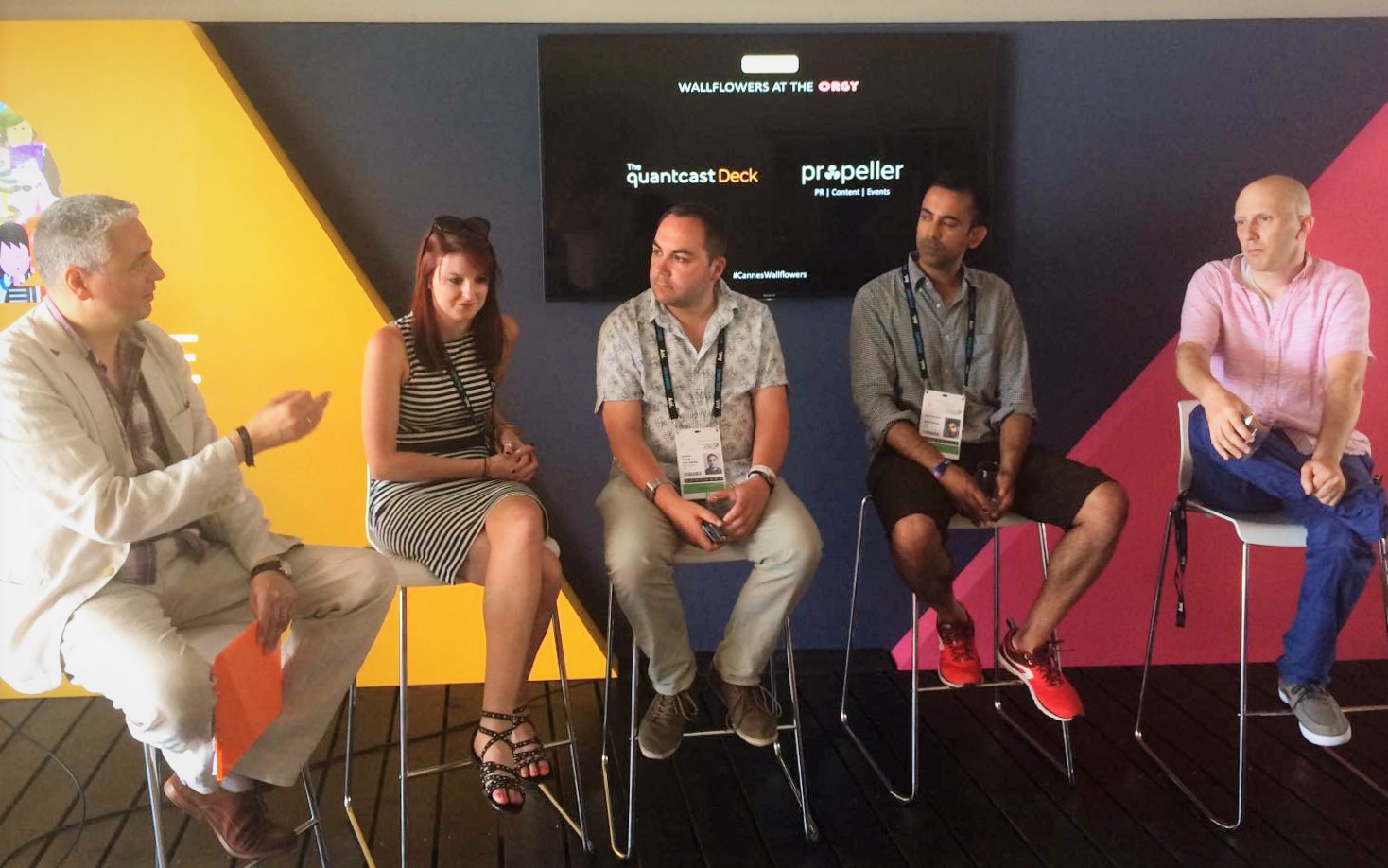
Don’t pitch without preparation – that was the message from editors to PRs at Propeller’s latest ‘Wallflowers at the Orgy’ session held at Cannes Lions.
The panel discussion, chaired by Propeller’s Director of Content Branwell Johnson, featured a stellar line-up of international journalists: Stephen Lepitak, Editor of The Drum (a title expanding internationally at a rapid rate), Rosie Baker, Editor of Australian title AdNews, David Griner, Digital Managing Editor at AdWeek in the US and Gael Clouzard, editor of French title Influencia.net.
Baker was first to call out ill-prepared PRs. “If it’s a tech story especially you need to properly understand it and be able to explain it to me,” she said. “Otherwise you shouldn’t have picked up the phone in the first place.”
Panellists discussed the changing nature of ‘news’ and the traditional thirst from journalists to break a story first. Some publications are trying to stand out from the crowd by focusing more on long-form content and analysis.
Clouzard said: “For us it’s not always about publishing first – news is not as important as it used to be. I don’t want to give my readers the same information they can find everywhere else.” Griner added that, in contrast to the days when everything had to be exclusive, if the story was good enough he would still consider covering it some weeks later. He referenced one campaign that he spotted in a little-read publication and championed, resulting in it winning a Titanium Lion.
PRs need to think about the reader and why they are visiting a particular site, according to Griner. He explained his personal criteria for stories was that they must help people do their job better, adding: “Tell me how [this story] is going to help kids just starting out of college, or a senior exec going into a big meeting.”
But Lepitak maintains a hunger for breaking news. “If I couldn’t break news stories I simply would not do this job,” he said.
The relationship between editorial and commercial teams highlighted differences in opinion. Baker said keeping commercial and editorial interests separate was vital but that the teams need to work closely together. Both Clouzard and Griner said they worked with commercial teams in order to advise on upcoming projects, whether they will be of interest to readers and how they can be more aligned to editorial content.
Lepitak said he was less involved with the commercial side of things but admitted he has had to intervene at times. “I’ve had to say ‘no’ to ads in the past if they are making the reader’s experience worse – for example a pop-up that fills the entire page or mobile device,” he added.
The adland battle of data versus creativity is seen in every region but the panel overwhelmingly agreed that the whole debate needed to move forward. Baker said: “We’re at a point where brands and agencies know the importance of data in advertising but need to get on with making it work.”
Griner agreed that the industry is scratching the surface when it comes to data’s potential to inform advertising. “I’ve spoken to a few different people about it this week, but having just seen the Creative Data Lions I’m afraid the work is still not up to much,” he said. “We’re moving away from the ‘big data’ conversation, which is good because it’s a boring one.”
Lepitak pointed to the interesting work The Drum has done in making IBM Watson the magazine’s guest editor as a more creative use of data, and said he was excited about the way data is ‘revolutionising’ the outdoor media industry.
While international editors clearly think there’s room for both breaking news and deeper analysis, publications need to find ways to differentiate their content to keep readers coming back for more. PRs too must be sensitive to this and find ways to shape clients’ stories in a way that convinces the gatekeepers that it will interest their readers.